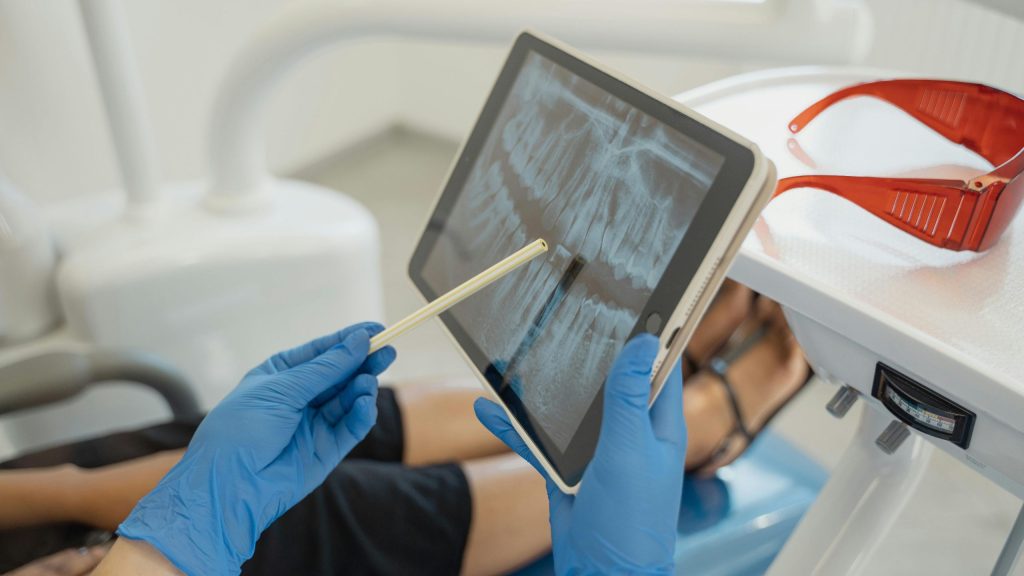Becoming a cosmetic dentist in the UK requires extensive training and education, but offers the reward of helping patients improve their smiles. Cosmetic dentistry focuses on aesthetic treatments like teeth whitening, veneers, braces, and smile makeovers.
If you’re interested in a career creating beautiful smiles, here’s a step-by-step guide to becoming a cosmetic dentist in the UK.
Earn an Undergraduate Degree
The first step is completing a 3-4 year Bachelor’s degree at university. Common degree choices include:
- Dentistry
- Biology
- Biomedical Sciences
- Health Sciences
- Chemistry
Look for a degree accredited by the General Dental Council (GDC). This will ensure it meets requirements for dental school admission. Work to maintain excellent grades, as dental school acceptance is highly competitive.
Take the UKCAT Exam
Nearly all UK dental schools require applicants to take the UK Clinical Aptitude Test (UKCAT). This 2-hour, computer-based exam evaluates skills in 4 areas:
- Situational Judgement
- Quantitative Reasoning
- Abstract Reasoning
- Decision Making
The UKCAT is typically taken in the summer or fall of the year you apply to dental school. Register and prepare for the exam through the UKCAT website.
Apply to Dental School
With your undergraduate degree and UKCAT score, you can apply through UCAS to dental schools in the UK. Typical requirements include:
- Minimum 3-year undergraduate degree
- Competitive GPA/class ranking
- Strong UKCAT performance
- Completed application form
- Letters of recommendation
- Personal statement
- School-specific prerequisites
Research each school’s criteria and tailor your application. Apply to multiple schools to increase your chances of acceptance.

Complete Dentistry Degree
Dental school takes 4-5 years to earn your Bachelor of Dental Surgery (BDS) or Bachelor of Dental Medicine (BDM) degree. This includes:
- Preclinical studies – Focus on biomedical sciences, anatomy, disease pathology
- Clinical training – Work under supervision treating patients
- Externships – Gain experience in community clinics
- Research project – Opportunity to conduct original research
Maintain a high GPA. Upon degree completion, you’ll qualify as a general dentist.
Complete Dental Foundation Training
After graduating, all dentists in the UK must complete a 1-year Dental Foundation Training (DFT) program. This residency-style program pairs new dentists with experienced mentors in approved clinics and hospital dental departments.
Through supervised practice, you’ll gain experience providing patient care and performing common treatments. DFT gives you the chance to build your skills in a supportive setting before practicing independently.
Register with the GDC
Before practicing dentistry in any capacity, you must register with the General Dental Council. This involves:
- Meeting fitness to practice requirements
- Passing a mandatory self-assessment
- Paying an annual retention fee
- Committing to GDC practice standards
- Obtaining professional indemnity insurance
GDC registration shows educational qualifications and validates your license to practice dentistry. Registration must be renewed annually.
Consider a Master’s Degree
Though not required, a postgraduate degree can be worthwhile to deepen your knowledge and skills in cosmetic dentistry. Options include:
- MSc in Restorative Cosmetic Dentistry – Covers dental aesthetics, biomaterials, restorations
- MSc in Prosthodontics – Focuses on crowns, veneers, bridges
- MSc in Orthodontics – Specializes in realigning teeth
- MSc in Periodontics – Treats gums and supporting bone
A Master’s degree and specialist training gives you advanced capabilities that make you more attractive to employers.
Build Experience as a General Dentist
Spend 2-4 years as a general dentist in a dental practice to gain experience. General dentistry skills that translate to cosmetic dentistry include:
- Performing checkups and diagnosing oral health issues
- Knowledge of tooth anatomy and structures
- Carrying out fillings and extractions
- Managing infection risks and patient safety
- Working delicately inside small spaces
- Using drills and other dental tools
- Reviewing X-rays and CT scans
- Communicating comfortably with patients
Build a reputation as a skilled, personable dentist before transitioning into cosmetic specialties.
Get Licensed in Cosmetic Dentistry
Though there is no mandated license for cosmetic dentistry itself, you’ll need to earn licenses in the major cosmetic treatment types you plan to offer. These may include:
- Restorative dentistry license – Allowing you to perform veneers, crowns, bridges, inlays, onlays
- Orthodontic license – For clear aligners, braces, retainers
- Periodontics license – For gum lifts and contouring
- Maxillofacial surgery license – For facial reconstruction procedures
Review licensing requirements through the GDC, Faculty of General Dental Practice UK, and related specialty boards.
Invest in Ongoing Education
The field of cosmetic dentistry changes rapidly as new technologies and techniques emerge. Commit to lifetime learning by:
- Taking continuing education courses each year on new procedures
- Attending seminars and conferences to discover innovations
- Reading dental journals and publications
- Joining professional associations and academies
- Completing postgraduate fellowships or mini residencies
Further education will help you master procedures like dental implants, botox injections, laser whitening, and sleep apnea treatments.
Build Your Professional Profile
To establish yourself as an expert cosmetic dentist, focus on:
- Creating a professional website showcasing your services and before/after photos
- Engaging on social media by sharing dental tips and advice
- Speaking at public engagements or being interviewed in the media
- Authoring articles in industry publications
- Volunteering expertise with charity organizations
Promoting your practice and establishing your reputation will help attract new cosmetic dentistry patients.
Purchase Necessary Equipment
Operating your own cosmetic dentistry practice requires specialized equipment and technology, including:
- Dental lasers for teeth whitening
- Imaging systems like intraoral cameras
- CAD/CAM systems for veneers and crowns
- 3D imaging for dental implants
- Digital smile design software
- Flexible mirrors for visibility
- Smaller drill bits for cosmetic work
- Bonding systems for veneers and fillings
Factor this significant equipment investment into your business planning.
FAQs About Becoming a Cosmetic Dentist in the UK
1. How long does it take to become a cosmetic dentist in the UK?
Answer: The typical timeframe is 11-14 years. A 3-4 year undergraduate degree, 5 year dentistry BDS program, 1 year Dental Foundation Training, and 2+ years gaining experience before specializing in cosmetic dentistry.
2. What is the average salary for a cosmetic dentist?
Answer: According to the NHS, experienced cosmetic dentists earn £72,000-£113,000 per year. Those with advanced credentials and private practices can earn over £150,000 annually.
3. What is the difference between cosmetic and general dentistry?
Answer: General dentists address oral health and basic dental problems. Cosmetic dentists focus solely on aesthetic treatments to improve smiles like teeth whitening, veneers, reshaping, implants, and orthodontics.
4. How competitive is it to get into dental school in the UK?
Answer: Admission is very competitive – dental programs accept 6-8% of applicants on average. Candidates need near perfect UKCAT scores, excellent academics, strong applications, and some dental exposure to stand out.
5. What qualifications do you need to open a private cosmetic dentistry practice in the UK?
Answer: You must complete undergraduate training, hold a BDS/BDM degree, complete Dental Foundation Training, register with the GDC, and earn any required licenses for the cosmetic treatments you plan to offer.
Conclusion
Becoming a licensed cosmetic dentist in the UK takes dedication – at minimum 11 years of education and over 5 rigorous licensing exams. But helping patients realize beautiful, confident smiles is incredibly rewarding.
With passion for aesthetics and proper training in cosmetic procedures, you can build a successful practice. By following the steps outlined, you’ll be well on your way to a prosperous, fulfilling career creating perfect smiles.

